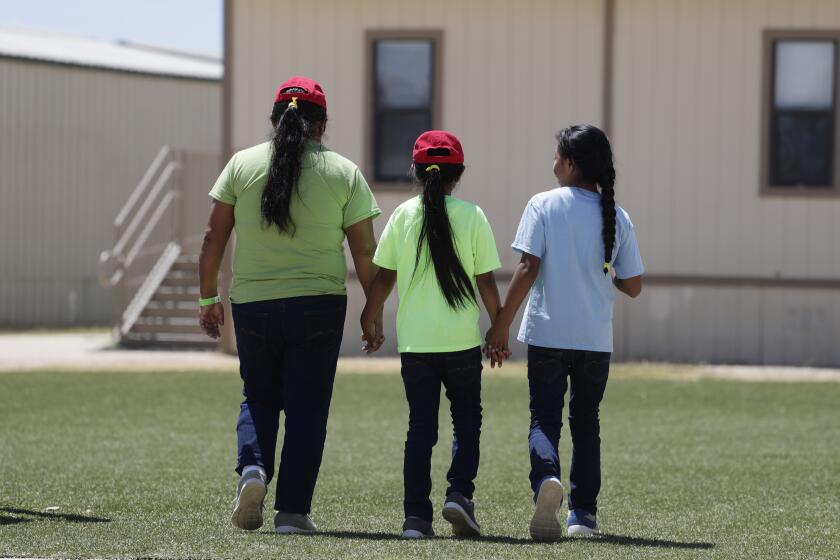Alleged seller of tribal status to migrants called a threat
- Share via
WICHITA, KAN. — The leader of an unrecognized American Indian tribe accused of selling tribal memberships to illegal immigrants under the guise it would make them citizens would obstruct justice if freed pending trial, prosecutors said at his bail hearing Monday.
Malcolm L. Webber, 69, chief of the Kaweah Indian Nation, would intimidate witnesses if freed on bail, Assistant U.S. Atty. Brent Anderson told the court. After authorities questioned one tribe leader, Eduviges del Carmen Zamora, she was fearful of entering a room with other tribal members, pantomiming having her throat slit, Anderson said.
Defense attorney Kurt Kerns portrayed his client, also known as Grand Chief Thunderbird IV, as a “mild-mannered pastor” who was the victim of renegade underlings who sold tribal memberships to immigrants for hundreds of dollars and pocketed the money.
“Malcolm is another victim of this fraud. He is not a perpetrator,” Kerns told U.S. Magistrate Judge Donald Bostwick.
Kerns said that Webber told immigrants they would have the benefits of tribal membership only after the tribe was federally recognized and that others may have misunderstood him.
Bostwick ordered Webber jailed until the hearing resumes Friday.
Webber is charged with attempting to defraud the federal government, harboring illegal immigrants and possession of false identification documents with intent to defraud the United States.
According to court documents, Webber told authorities they had no right to be “on sovereign land” when they came to arrest him this month.
Bostwick said he was concerned that if freed on bail, Webber might use his network of tribal offices in Texas and Mexico to flee.
He asked Kerns to address those concerns when the hearing resumes.
The judge also expressed concern about the safety of court officials, given the statements Webber allegedly made about sovereignty and about how the court could prevent Webber from having prohibited contacts with other tribal members.
“It is very difficult for me to buy the picture the defendant paints of himself as a victim,” Bostwick said.
The hearing offered the first public glimpse into the government’s case, and the extent to which the Kaweah allegedly portrayed itself as a sovereign nation with purported ambassadors to Mexico, Canada and other countries.
The federal government does not recognize the Kaweah Indian Nation as an American Indian tribe.
The tribal memberships did not make the buyers U.S. citizens, which would allow them to get driver’s licenses, Social Security cards and other documents.
More to Read
Sign up for Essential California
The most important California stories and recommendations in your inbox every morning.
You may occasionally receive promotional content from the Los Angeles Times.








